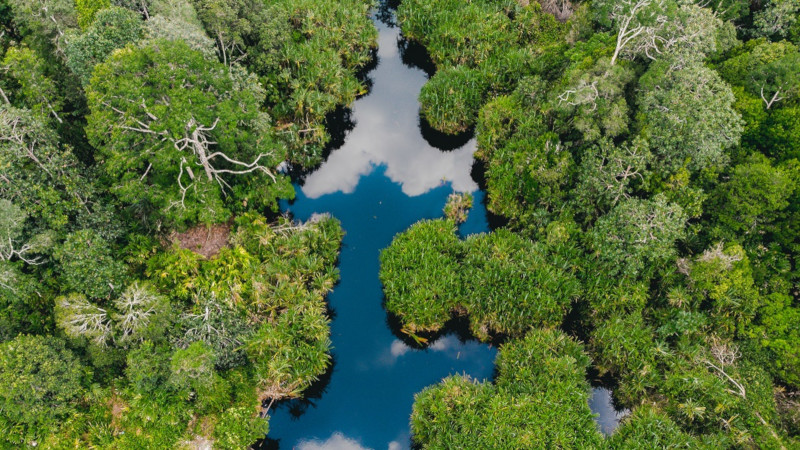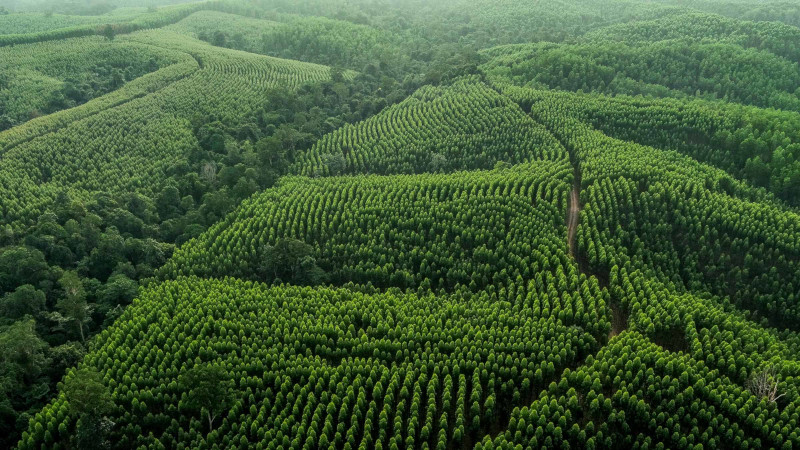April 21, 2021
Every 22 April the world celebrates International Mother Earth Day. This year, once again we celebrate this important day in a challenging situation since the world has not yet escaped from the murky waters of the corona virus outbreak.
But let us be reminded again of the importance of restoring our earth. What is happening today is the sum of our actions. Climate change, man-made changes to nature, such as deforestation, land-use change, intensified agriculture and livestock production or the growing illegal wildlife trade, can increase contact and the transmission of infectious diseases from animals to humans.
Not only that, it seems that nature has gone out of sync. Based on the World Meteorological Organisation the year 2020 was the second warmest year on record. And, 2011-2020 is also the warmest decade on record, with the warmest six years all being since 2015.
Last year the planet was supposed to experience La Nina, which has a cooling effect on temperatures; instead the warming continued. Even the global mobility restriction didn’t really help much.
As the world begins its recovery process, we need to build it back better by walking in harmony with nature. The private sector, as the driving force of development, can help by investing more in nature-based solutions such as ecosystem restoration.
Restoring Forest in Kampar Peninsula and Padang Island
This year is the beginning of the UN Decade on Ecosystem Restoration. By preventing and reversing ecosystem degradation we can create a healthier planet. Ecosystem restoration means assisting in the recovery of ecosystems that have been degraded or destroyed, as well as conserving ecosystems that are still intact. Healthier ecosystems, with richer biodiversity, yield greater benefits such as more fertile soils, clean water provision, flood control, climate regulation and larger stores of greenhouse gases.

In 2013 APRIL, one of Indonesia’s leading pulp and paper companies, initiated the Restorasi Ekosistem Riau (RER) program. Today, RER is one of the largest ecosystem restoration programmes in Southeast Asia. It aims to protect and restore more than 150,000 hectares of ecologically important peat swamp forest in Kampar Peninsula and Padang Island in Riau Province, Sumatra.
In restoring and protecting the landscape, RER employs an integrated production-protection landscape model. This integrated approach is based on the location of productive fiber plantations on the perimeter of RER, which work to protect the interior peat swamp forest and peat domes.

APRIL’s sustainably managed acacia plantations create a buffer zone that reduces human encroachment, illegal logging and fires. The plantation ring also provides a renewable fiber resource to produce added-value products such as pulp, paper and viscose that generate economic returns and provide employment opportunities.
This has proven to be a reliable, consistent and effective approach to support restoration in Indonesia, especially given the significant financial and technical resources required to maintain the program over time.
During its seven year journey, RER has shown incremental and steady progress. RER is continuously improving its biodiversity counts from around 500 species of plants and animals in 2016 to around 800 species today.
Forest restoration and active protection by RER rangers are also bringing back the peat’s moisture, and in several locations we are able to bring back seasonal flooding which are vital to a healthy peat swamp forest. This makes the area less susceptible to fires.
Moreover, a Normalized Differential Vegetation Index (NDVI, which is an indicator of forest health) from 2012 to 2018 showed a continuous improvement in the above-ground biomass conditions of peat forests on the Kampar Peninsula.
Restoring the earth is not an easy task. That is why we need everyone to step up, including business. The RER model is a proof that you can both produce from a landscape, as well as protect it.
Let us be reminded again. We only have one planet, let’s restore it!